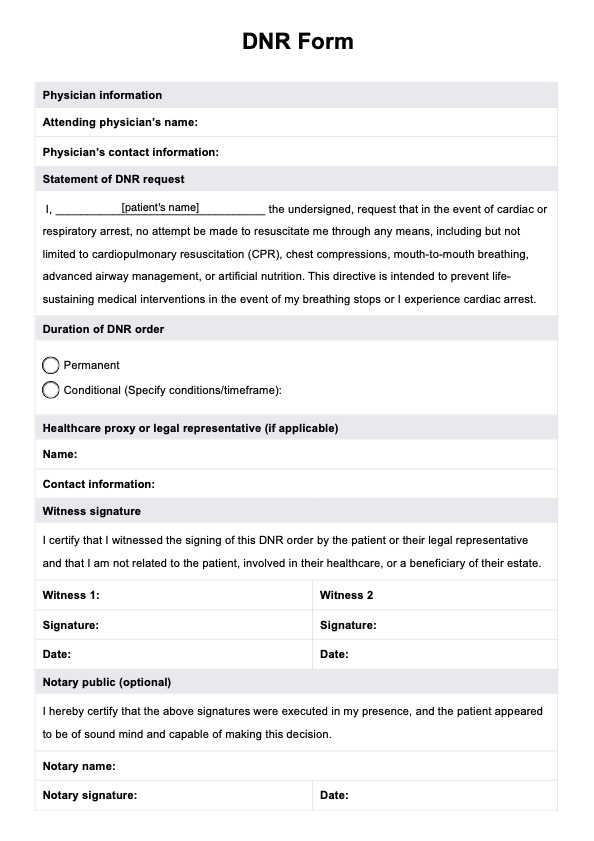The do-not-resuscitate (DNR) form must be signed by at least two witnesses not involved in the patient’s medical care. This ensures that the patient’s wishes are legally recognized. These witnesses are crucial to the signing requirements and help confirm the order's validity.

Do-Not-Resuscitate (DNR) Forms
Download our free DNR form PDF and learn what a Do-Not-Resuscitate order is, how to use it, and ensure your medical care preferences are respected.
Do-Not-Resuscitate (DNR) Forms Template
Commonly asked questions
Yes, a DNR order can be part of a living will. A living will outlines an individual's medical care preferences, including their wishes regarding life-sustaining treatments. It provides clarity on how the person wants to be treated in medical emergencies.
Yes, a doctor’s signature is required for the DNR to be legally valid. The physician must verify the order and ensure it aligns with the patient's wishes, particularly for comfort care and avoiding unnecessary medical interventions.
EHR and practice management software
Get started for free
*No credit card required
Free
$0/usd
Unlimited clients
Telehealth
1GB of storage
Client portal text
Automated billing and online payments











